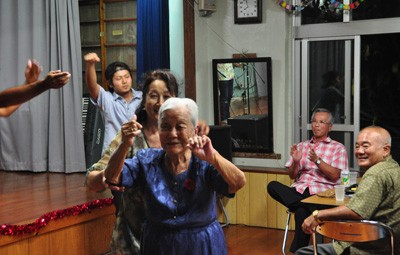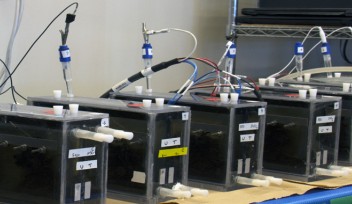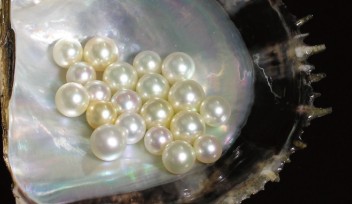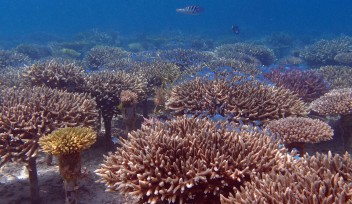Okinawan Food = Long Life?
Okinawans are famous for their longevity. Many reasons have been proposed, one being diet.

Dr. Mitsuhiro Yanagida, Principal Investigator at OIST's G0 Cell Unit, proposes that some food compounds - metabolites - found in local Okinawan plants and fruits such as, Ukon (turmeric) and Tankan (a Japanese citrus fruit) likely activate genes found to increase life span.
Dr. Yanagida has received a 3-year research grant from the Okinawa Prefectural Government enabling him and researchers from the University of the Ryukyus and Kyoto University to analyze Okinawan foods such as Ukon and Tankan for metabolites that could activate the gene associated with longevity.
Samples from Ukon and Tankan are collected by the researchers and comprehensively analyzed for the responsible compounds. The compounds are then incorporated into skin patches that volunteer participants are given. The use of patches permits direct absorption of these compounds into the blood. The researchers analyze the behavior of the compounds in the blood, studying how long the compounds stayed in the blood and their subsequent effect.
"Longevity has not been a serious target of medical research because ageing is not considered a disease," says Dr. Yanagida. “But the fact that many Okinawans live long and healthy lifestyles means that such ability should be a global experience. Basically, I am interested in promoting healthy ageing whereby elderly people don’t stay bedridden but can be healthy, energetic and independent even at very old age."
Identifying the exact compounds that activate the gene associated with longevity means that this information could be used to produce food supplements that improve people's chances of living longer and healthier lives. In addition, the success of this research has potential to contribute economically, to Okinawa's development. Okinawan food products could be used to develop biotechnological ventures that could be marketed globally. "This is the prime time for life science and industry to connect," concluded Dr. Yanagida.
Specialty
For press enquiries:
Press Inquiry Form














